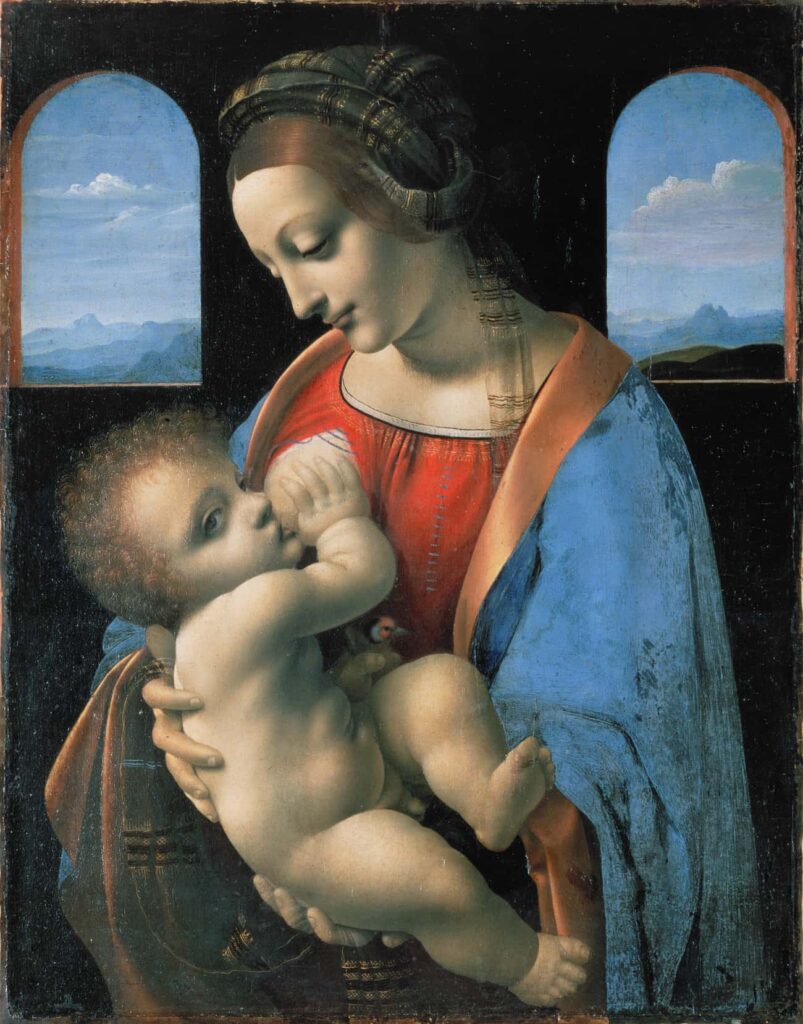Note: If you wish to receive, via e-mail, (1) my weekly newsletter or (2) daily copies of these posts, notify me at [email protected] and indicate which you would like. I promise not to share your e-mail address with anyone. To unsubscribe, send me a follow-up email.
Spiritual Sunday
Today being the third Sunday of Advent, the focus is on Mary. In place of the weekly psalm, Episcopal churches have the option of reading “The Song of Mary.” That’s the one that begins,
My soul proclaims the greatness of the Lord
my spirit rejoices in God my Savior;
for he has looked with favor on his lowly servant.
From this day all generations will call me blessed:
the Almighty has done great things for me, and holy is his Name.
To mark the occasion, I share this W.B. Yeats poem that I’ve just discovered. The first stanza is about the Annunciation, the second about Mary’s daily activities—how she feels she doesn’t fit in with the other women–and the third is about the love she has for her baby. The love goes so deep that she has a premonition of something going wrong:
This love that makes my heart’s blood stop
Or strikes a Sudden chill into my bones
And bids my hair stand up?
What loving parent has not felt the “Sudden chill” that can accompany the vulnerability brought on by having a child:
The Mother of God
By W.B. YeatsThe threefold terror of love; a fallen flare
Through the hollow of an ear;
Wings beating about the room;
The terror of all terrors that I bore
The Heavens in my womb.
Had I not found content among the shows
Every common woman knows,
Chimney corner, garden walk,
Or rocky cistern where we tread the clothes
And gather all the talk?
What is this flesh I purchased with my pains,
This fallen star my milk sustains,
This love that makes my heart’s blood stop
Or strikes a Sudden chill into my bones
And bids my hair stand up?
In the final stanza, there seems momentary deflation—is the baby worth the pains I went through to birth it, Mary wonders. (In the poem “Among School Children,” Yeats doubts that mother, upon seeing her 60+-year-old son, would see in that shape “a compensation for the pang of his birth.”) At first, doubts about having a child prmpt of her to think of the infant Jesus as a “fallen star.” But then this doubt is countered by a love that goes so deep that it “makes my blood stop/ Or strikes a Sudden chill into my bones / And bids my hair stand up.”
The third stanza gives us insight into the “threefold terror of love” mentioned in the first. The first is the impregnating visit of the Holy Spirit that results in the fallen star (“the fallen flare/ Through the hollow of an ear”). The second is the awe-inspiring presence of the divine through angelic visitation (“wings beating about the room”). The third is the terror of God’s incarnation, which is to say divinity taking human form and coming to dwell amongst us.
Perhaps at this moment of greatest vulnerability—where Mary’s heart is utterly open—she senses the cross.
